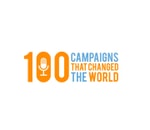The Progress Educational Trust podcast – Details, episodes & analysis
Podcast details
Technical and general information from the podcast's RSS feed.

The Progress Educational Trust podcast
Progress Educational Trust
Frequency: 1 episode/30d. Total Eps: 31

On this podcast, you can hear the latest PET discussions of scientific, ethical, legal and policy issues in fertility, genetics, genomics and embryo/stem cell research.
These discussions feature experts and advocates from around the world, as well as contributions from patients and the broader public.
Recent rankings
Latest chart positions across Apple Podcasts and Spotify rankings.
Apple Podcasts
🇬🇧 Great Britain - nonProfit
11/07/2025#85🇬🇧 Great Britain - nonProfit
10/07/2025#71🇬🇧 Great Britain - nonProfit
09/07/2025#56🇬🇧 Great Britain - nonProfit
08/07/2025#43🇬🇧 Great Britain - nonProfit
07/07/2025#29🇬🇧 Great Britain - nonProfit
06/07/2025#22🇬🇧 Great Britain - nonProfit
05/07/2025#15🇬🇧 Great Britain - nonProfit
29/06/2025#82🇬🇧 Great Britain - nonProfit
28/06/2025#69🇬🇧 Great Britain - nonProfit
27/06/2025#56
Spotify
No recent rankings available
Shared links between episodes and podcasts
Links found in episode descriptions and other podcasts that share them.
See allRSS feed quality and score
Technical evaluation of the podcast's RSS feed quality and structure.
See allScore global : 58%
Publication history
Monthly episode publishing history over the past years.
Where Art Meets ART: Creative Exploration of Fertility Research and Treatment
Episode 21
lundi 29 juillet 2024 • Duration 01:20:44
The discussion is chaired by Sarah Norcross (Director of PET), with contributions from:
⚫ Professor Adèle Marston (Director of the Wellcome Centre for Cell Biology)
⚫ Dr Sarah-Jane Judge (Public Engagement Manager at the Wellcome Centre for Cell Biology)
⚫ David Mola (glass artist)
⚫ Lucy Munro (Research Assistant at the Wellcome Centre for Cell Biology)
⚫ Dr Gerard Pieper (Sir Henry Wellcome Postdoctoral Fellow at the Wellcome Centre for Cell Biology)
⚫ Dr Muriel Erent (Laboratory Manager at Warwick Medical School)
⚫ Aleksandra Byrska (PhD researcher at Warwick Medical School)
⚫ Dr Cerys Currie (Postdoctoral Researcher at Warwick Medical School)
⚫ Professor Geraldine Hartshorne (Scientific Director of the Coventry Centre for Reproductive Medicine)
⚫ Robyn Kerr (poet and hotel manager)
How might creation of and engagement with artworks help patients, scientists and artists to communicate with one another, and develop new insights into fertility? The project New Horizons in Fertility Research has been exploring this question in relation to egg cells and early human embryos.
Bespoke artworks created as part of the project are being used to help patients in Edinburgh and Coventry understand, and visualise, aspects of (in)fertility and related research.
Meanwhile, scientists and researchers are seeking to improve their understanding of patient views and experiences – and to find new perspectives on research questions – by developing and discussing artworks as part of this project.
In this discussion, various people involved in the project – including junior and senior researchers, a glass artist, and a laboratory manager – discuss their work and what they have learned, and consider future possibilities.
PET is grateful to New Horizons in Fertility Research (a project based at the University of Edinburgh's Wellcome Centre for Cell Biology and at the University of Warwick, supported by a ScotPEN Wellcome Engagement Award) for supporting this discussion.
PET is also grateful to Jon Nicoll, who created the opening and closing music for its podcast.
Register at https://www.progress.org.uk/events/upcoming-events/ for upcoming PET events.
IVF Add-Ons: Building Bridges between Clinics, Regulators and Patients
Episode 20
lundi 1 juillet 2024 • Duration 01:34:53
The discussion is chaired by Sarah Norcross (Director of PET), with contributions from:
⚫ Professor Manuela Perrotta (Professor of Sociology of Technology and Organisation at Queen Mary University of London)
⚫ Alex Davies-Jones (Member of Parliament for Pontypridd)
⚫ Dr Rachel Gregoire (Deputy Chair of the Association of Reproductive and Clinical Scientists)
⚫ Rachel Cutting (Director of Compliance and Information at the Human Fertilisation and Embryology Authority)
⚫ Kate Brian (Cofounder of the Fertility Alliance)
Add-ons are optional treatments, technologies or procedures offered alongside IVF – often at considerable expense to patients – which may not be supported by reliable evidence.
Despite several regulatory initiatives, concerns persist about the extent to which add-ons are offered and used, and about the quality of information concerning add-ons that is provided to fertility patients.
In recent months, the Building Bridges project – led by Professor Manuela Perrotta at Queen Mary University of London, in partnership with PET – has been working with clinics, regulators, patients and others, in order to:
⚫ Identify core needs, priorities and challenges faced by different groups involved in fertility care.
⚫ Develop novel and collaborative approaches to addressing these challenges, as they relate to IVF add-ons.
⚫ Propose a set of feasible solutions.
In this discussion, speakers including Professor Perrotta and also Alex Davies-Jones MP – who has proposed a Fertility Treatment (Transparency) Bill in Parliament – present the work of the Building Bridges project, and explore related issues.
PET is grateful to the Building Bridges project (part of the Remaking Fertility initiative, based at Queen Mary University of London and funded by the British Academy) for supporting this discussion.
PET is also grateful to Jon Nicoll, who created the opening and closing music for its podcast.
Register at https://www.progress.org.uk/events/upcoming-events/ for upcoming PET events.
Small Change: Is It Time to Reconsider Compensation for Gamete Donors?
Episode 11
lundi 2 octobre 2023 • Duration 01:32:41
The discussion is chaired by Sarah Norcross (Director of PET), with contributions from:
⚫ Nayla Tohme (Patient Engagement Officer at the London Egg Bank)
⚫ Hayley King (donor-conceived person, also herself a mother of twins conceived with donor sperm)
⚫ Saghar Kasiri (Director of European Operations at Cryos International)
⚫ Dr Ben Hurlbut (Associate Professor of Bioscience Ethics at Arizona State University)
What levels of compensation – financial or otherwise – should be standard, and permissible, for gamete donors? The UK's fertility regulator, the Human Fertilisation and Embryology Authority (HFEA), last addressed this question in 2011.
Following a public consultation, the HFEA decided that donors could receive fixed sums of money (this had not been permitted previously), with a maximum of £35 per clinic visit for sperm donors and a maximum of £750 per cycle of donation for egg donors. The HFEA arrived at these figures after reviewing policies in 15 other European countries, taking particular inspiration from Danish policy (for sperm donor compensation) and Spanish policy (for egg donor compensation).
The maximum payments set in 2011 remain in place in the latest edition of the HFEA's Code of Practice (CoP). The CoP also permits egg sharing and sperm sharing arrangements, stating that clinics 'may offer benefits in kind, in the form of reduced-price or free licensed services (for example, fertility treatment or storage) or quicker access to those services, in return for providing eggs or sperm for the treatment of others'.
12 years on, should compensation for gamete donors be reconsidered, to take account of inflation and the cost-of-living crisis?
Importantly, those who donate gametes in the UK are only officially permitted to receive 'compensation' for their donation, as distinct from 'payment'. This distinction was originally a requirement of the European Tissues and Cells Directive of 2004, which stipulates that 'member states shall endeavour to ensure voluntary and unpaid donations of tissues and cells' and that 'donors may receive compensation, which is strictly limited to making good the expenses and inconveniences related to the donation'.
Now that the UK has left the European Union, it might be asked whether the UK is still bound by this particular requirement – and if it is, whether it should be.
PET is grateful to the Association of Reproductive and Clinical Scientists and the British Fertility Society for supporting this discussion.
PET is also grateful to Jon Nicoll, who created the opening and closing music for its podcast.
Register at https://www.progress.org.uk/events/upcoming-events/ for upcoming PET events.
The Women's Health Strategy
Episode 10
vendredi 28 juillet 2023 • Duration 01:37:34
The discussion is chaired by Sarah Norcross (Director of PET), with contributions from:
⚫ Professor Geeta Nargund (Co-Founder and Medical Adviser at Ginsburg Women's Health Board)
⚫ Nickie Aiken (Member of Parliament for the Cities of London and Westminster)
⚫ Isaac Barnswell (Research and Policy Officer at Stonewall)
⚫ Laura-Rose Thorogood (Founder of LGBT Mummies)
⚫ Dr Raj Mathur (Lead for Reproductive Medicine at St Mary's Hospital)
In July 2022, the UK Government published the first ever Women's Health Strategy for England.
The section of the Strategy that deals with fertility and pregnancy includes Government commitments to:
⚫ 'Work with NHS England to review and address the current geographical variation in access to NHS-funded fertility services across England to ensure all NHS fertility services are commissioned in a clinically justifiable way.'
⚫ 'Explore mechanisms to publish data nationally on provision and availability of IVF' and 'improve information provision regarding fertility over the next two years'.
⚫ 'Remove non-clinical access criteria to fertility treatment, such as one partner having a child from a previous relationship, to create more equality in access to fertility services.'
⚫ Ensure that when it comes to same-sex couples, 'there is no requirement for self-funding and the NHS treatment pathway for female same-sex couples will start with six cycles of artificial insemination, prior to accessing IVF services if necessary'.
The Government Minister responsible for the Women's Health Strategy, Maria Caulfield, said in the House of Commons in January 2023 that the Government's 'eight priorities for this year' in relation to the Strategy include 'improving and standardising access to in vitro fertilisation for same-sex couples around the country'.
In July 2023, the same Minister reaffirmed the Government's commitments, saying: 'We will improve access to IVF by removing the additional financial burden on female same-sex couples accessing treatment. We will be working with NHS England to assess fertility provision across ICBs, with a view to removing non-clinical access criteria. We will also work with stakeholders to improve information provision on fertility and fertility treatments, including on the NHS website, and introduce greater transparency of the local provision of IVF.'
This discussion asks what progress has been made with the Strategy, and what can be done to ensure that the Government honours its commitments.
PET is grateful to the British Fertility Society and Merck for supporting this discussion.
PET is also grateful to Jon Nicoll, who created the opening and closing music for its podcast.
Register at https://www.progress.org.uk/events/upcoming-events/ for upcoming PET events.
Counselling and Assisted Reproduction: When, Why and by Whom Should It Be Offered?
Episode 9
lundi 26 juin 2023 • Duration 01:36:51
The discussion is chaired by Sarah Norcross (Director of PET), with contributions from:
⚫ Alison McTavish (Member of the Human Fertilisation and Embryology Authority)
⚫ Angela Park (Fertility Counsellor at Aberdeen Fertility Centre)
⚫ Lee Noquet (Egg Donor Coordinator at the Edinburgh Fertility Centre)
⚫ Professor Jacky Boivin (Professor of Health Psychology at Cardiff University)
Different types of counselling may be sought, offered, recommended or required in relation to assisted conception. The language around such counselling can sometimes be confusing, leading to mismatched expectations of what counselling entails and who is best placed to deliver or facilitate it.
Of particular importance are distinctions between:
⚫ Information counselling – This involves the provision of medical information. Under UK regulation, such counselling must be provided in order for a fertility patient's consent to be valid. This sort of counselling would usually be provided by a member of the medical team.
⚫ Therapeutic counselling – This involves helping a person deal with (current, future or potential) challenges, decisions, difficulties, distress or emotions. Under UK regulation, such counselling is not required in order for consent to be valid (indeed, it is an important principle that such counselling is voluntary). The content and outcome of such counselling is usually confidential.
⚫ Implications counselling – This involves the provision or clarification of information about the implications of treatment or donation, and also involves exploring these implications. This has fallen into a grey area. Who is qualified to deliver such counselling? Is such counselling necessary, in order for consent to be valid? Does it, or can it, include a therapeutic element?
PET is grateful to the Scottish Government for supporting this discussion.
PET is also grateful to Jon Nicoll, who created the opening and closing music for its podcast.
Register at https://www.progress.org.uk/events/upcoming-events/ for upcoming PET events.
NHS Fertility Treatment: Wouldn't It Be NICE to Have a Workable Guideline?
Episode 8
lundi 19 juin 2023 • Duration 01:36:43
The discussion is chaired by Dr Helen O'Neill, with contributions from:
⚫ Professor Dame Clare Gerada (President of the Royal College of General Practitioners)
⚫ Steve McCabe MP (Member of Parliament for Birmingham Selly Oak)
⚫ Penny Mitchell (Director for Population Health Commissioning at NHS North Central London's Integrated Care Board)
⚫ Professor Melanie Davies (Professor of Reproductive Medicine at University College London)
⚫ Dr Chris Skedgel (Director of the Office of Health Economics)
⚫ Dr Catherine Hill (Interim Chief Executive of Fertility Network UK)
⚫ Sarah Norcross (Director of PET)
For 20 years, the UK's National Institute for Health and Care Excellence (NICE) has recommended that the NHS should provide up to three full cycles of IVF to a woman (under 40 years of age) undergoing fertility treatment.
This recommendation has never been met consistently by NHS commissioning bodies in England. Consequently, fertility patients in England have spent the past two decades at the mercy of a 'postcode lottery'.
This situation did not improve when the NICE Fertility Guideline received its last major update in 2013. It remains to be seen whether the situation will change when a newly updated Guideline, currently under development, is published by NICE in 2024.
Meanwhile, in July 2022 the UK Government made a commitment – in its Women's Health Strategy for England – 'to greater transparency of the provision of IVF services across the country', and 'to publish data nationally on provision and availability of IVF'. As yet, these things have not happened.
Then in May 2023, PET published its report The Power of Three IVF Cycles, which distils interviews with 194 GPs and six NHS Commissioners across 40 out of 42 English commissioning areas.
This research shows that GPs have a poor understanding of the NICE Fertility Guideline, with only half of GPs able to identify the recommendation (now 20 years old) that three full cycles of NHS-funded IVF should be provided.
Furthermore, around half of GPs believe that their area meets or exceeds the NICE Guideline (even though it has been found that only around one-tenth of areas in England meet this standard), and male GPs are less likely than female GPs to refer eligible patients for IVF.
The PET research also found widespread confusion, among GPs, about the definition of a single 'full' IVF cycle. According to NICE, a full cycle incorporates all transfers to the patient's womb of viable embryos that have been created earlier in that cycle.
PET is grateful to Ferring Pharmaceuticals for supporting this discussion.
PET is also grateful to Jon Nicoll, who created the opening and closing music for its podcast.
Register at https://www.progress.org.uk/events/upcoming-events/ for upcoming PET events.
Surrogacy Law: What Is Intended... For Parents? For Surrogates? For Children?
Episode 7
mardi 25 avril 2023 • Duration 01:35:23
The discussion is chaired by Sarah Norcross (Director of PET), with contributions from:
⚫ Professor Gillian Black (Law Commissioner responsible for Surrogacy at the Scottish Law Commission)
⚫ Beverley Addison (Senior Solicitor at BTO Family Law)
⚫ Dr Alan Brown (Senior Lecturer in Private Law at the University of Glasgow)
⚫ Alan Inglis (Barrister and Advocate at Arnot Manderson Advocates)
Since 2017, the Scottish Law Commission and the Law Commission of England and Wales have been reviewing UK surrogacy law, developing proposals for reform and holding a public consultation on how the law might be changed.
Now, the Law Commissions have drafted a new Surrogacy Bill and presented it to Government, together with the wide-ranging report Building Families through Surrogacy: A New Law.
The proposals from the Law Commissions include:
⚫ A new pathway to parenthood which, if followed, would enable the intended parents of a child via surrogacy to acquire legal parenthood upon birth of the child (rather than having to wait for months to obtain a parental order).
⚫ Maintaining the current requirement that at least one of the intended parents must have a genetic link to the prospective child (this would preclude so-called 'double donation').
⚫ Enabling a court to make a parental order where the surrogate withdraws her consent.
⚫ Establishing a system whereby surrogacy agreements are overseen and supported by nonprofit organisations, which would themselves be regulated by the UK's Human Fertilisation and Embryology Authority (HFEA).
⚫ Establishing a new Surrogacy Register, to enable surrogate-born people to access information about their origins.
⚫ Continuing the current prohibition on commercial surrogacy, while clarifying rules on payments that intended parents are – and are not – permitted to make to surrogates.
⚫ Discouraging international surrogacy arrangements in favour of domestic arrangements, while seeking to add safeguards if international arrangements are made.
This discussion begins with an overview of the Law Commissions' work, presented by the Scottish Law Commissioner responsible for surrogacy. Other legal experts then offer their perspectives on the Law Commissions' proposals.
PET is grateful to the Scottish Government for supporting this discussion.
PET is also grateful to Jon Nicoll, who created the opening and closing music for its podcast.
Register at https://www.progress.org.uk/events/upcoming-events/ for upcoming PET events.
Your Chance for Change: Shaping the UK's Fertility and Embryo Law
Episode 6
lundi 10 avril 2023 • Duration 01:30:28
The discussion is chaired by Sarah Norcross (Director of PET), with contributions from:
⚫ Peter Thompson (Chief Executive of the Human Fertilisation and Embryology Authority)
⚫ Venessa Smith (Quality Manager for the Assisted Conception Unit at Guy's Hospital)
⚫ Dr Rachel Gregoire (Scientific Director of the Hewitt Fertility Centre)
⚫ Dr Kay Elder (Senior Research Scientist at Bourn Hall Clinic)
⚫ James Lawford Davies (Partner at Lawford Davies & Co)
Following its consultation on proposed changes to the law, the UK's fertility regulator – the Human Fertilisation and Embryology Authority (HFEA) – is due to submit recommendations for law reform to the UK Government.
The main law that governs fertility treatment and embryo research – the Human Fertilisation and Embryology Act – was originally passed in 1990, and was last given a thoroughgoing update in 2008. There are many respects in which this law fails to meet the present and prospective needs of patients, practitioners, researchers, regulators and others.
The HFEA structured its consultation around the following four themes.
⚫ Patient safety and promoting good practice (including reference to the Independent Medicines and Medical Devices Safety Review and the Women's Health Strategy for England).
⚫ Access to donor information (including reference to the impact of direct-to-consumer genetic testing on the identifiability of sperm/egg/embryo donors, and the identifiability of donor-conceived people).
⚫ Consent (including reference to situations where problems with and disagreements about consent have had to be resolved in court).
⚫ Scientific developments (including reference to regulatory 'sandboxes' as discussed by the Regulatory Horizons Council, and to the latest guidelines published by the International Society for Stem Cell Research).
This discussion begins with an overview of the consultation, presented by the Chief Executive of the HFEA. Experts and practitioners in fertility treatment, embryo research and related law then exchange ideas about how to reform the law in this area.
PET is grateful to Merck for supporting this discussion.
PET is also grateful to Jon Nicoll, who created the opening and closing music for its podcast.
Register at https://www.progress.org.uk/events/upcoming-events/ for upcoming PET events.
Fertility-Friendly Workplaces? Attitudes to Assisted Conception and Employment
Episode 5
jeudi 23 mars 2023 • Duration 01:34:39
The discussion is chaired by Sarah Norcross (Director of PET), with contributions from:
⚫ Nickie Aiken MP (Member of Parliament for the Cities of London and Westminster)
⚫ Dr Zeynep Gurtin (Lecturer in Women's Health at University College London)
⚫ Anya Sizer (Lead for the Fertility in the Workplace initiative at Fertility Network UK)
⚫ Becky Kearns (Co-Founder of Fertility Matters at Work)
⚫ Natalie Sutherland (Partner at Burgess Mee Family Law, and Trustee at PET)
These speakers discuss various ways of addressing fertility-related challenges in the workplace, including:
⚫ The Fertility Treatment (Employment Rights) Bill that Nickie Aiken is proposing in the UK Parliament.
⚫ The Fertility Workplace Pledge, also launched by Nickie Aiken.
⚫ The Fertility in the Workplace and Fertility Matters at Work initiatives.
⚫ The In/Fertility in the City podcast.
PET is grateful to Carrot Fertility and Merck for supporting this discussion.
PET is also grateful to Jon Nicoll, who created the opening and closing music for its podcast.
Register at https://www.progress.org.uk/events/upcoming-events/ for upcoming PET events.
When to Stop Storage: Improving Conversations About Unused Embryos
Episode 4
lundi 13 mars 2023 • Duration 01:30:05
The discussion is chaired by Sarah Norcross (Director of PET), with contributions from:
⚫ Joanne Leitch (Lead Clinician at Fertility Scotland)
⚫ Anne Chien (Counsellor at Ninewells Hospital's Assisted Conception Unit)
⚫ Sharon Martin (Business Development Manager at Fertility Network UK)
Fertility patients may have embryos left in storage at the end of their treatment. If these patients consider themselves to have completed their family – meaning that they are unlikely ever to wish to use the remaining embryos to have further children – then they have the following five options.
⚫ Donate the embryos for use in research.
⚫ Donate the embryos for use in training.
⚫ Donate the embryos to other patients who face difficulty in conceiving a child.
⚫ Consent to the embryos being allowed to perish.
⚫ Delay or avoid the decision.
Many people find this choice difficult to make. Consequently, they 'choose' the final option – or perhaps more accurately, the final option occurs by default – although in the UK, they are required by law to renew their consent every 10 years (for up to an overall maximum of 55 years), if they wish storage to continue.
People with unused embryos in storage currently receive little or no information or support – either immediately after their fertility treatment, or when the end of a 10-year storage period is imminent – to help them make a decision.
PET is grateful to the Scottish Government for supporting this discussion.
PET is also grateful to Jon Nicoll, who created the opening and closing music for its podcast.
Register at https://www.progress.org.uk/events/upcoming-events/ for upcoming PET events.









